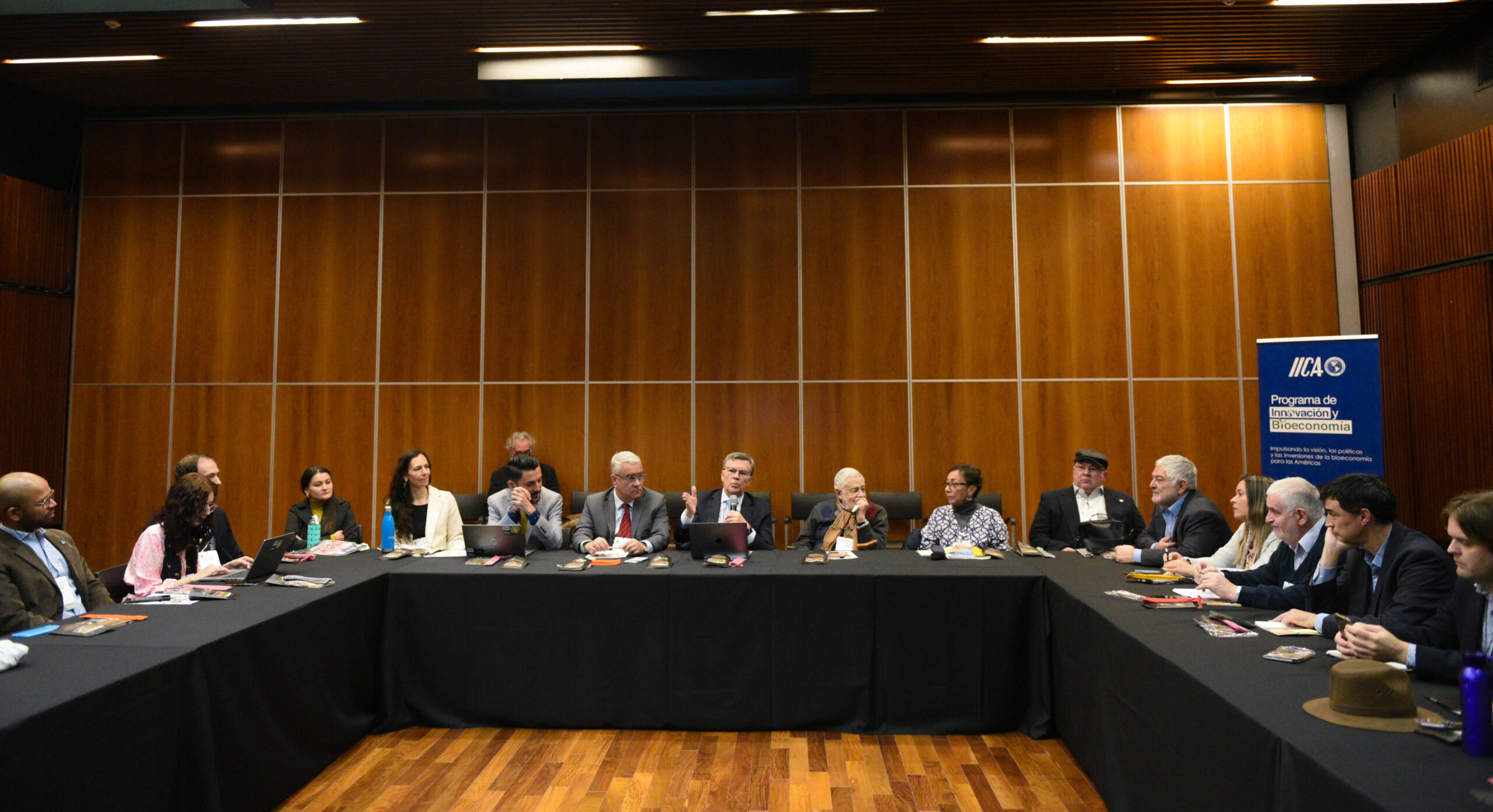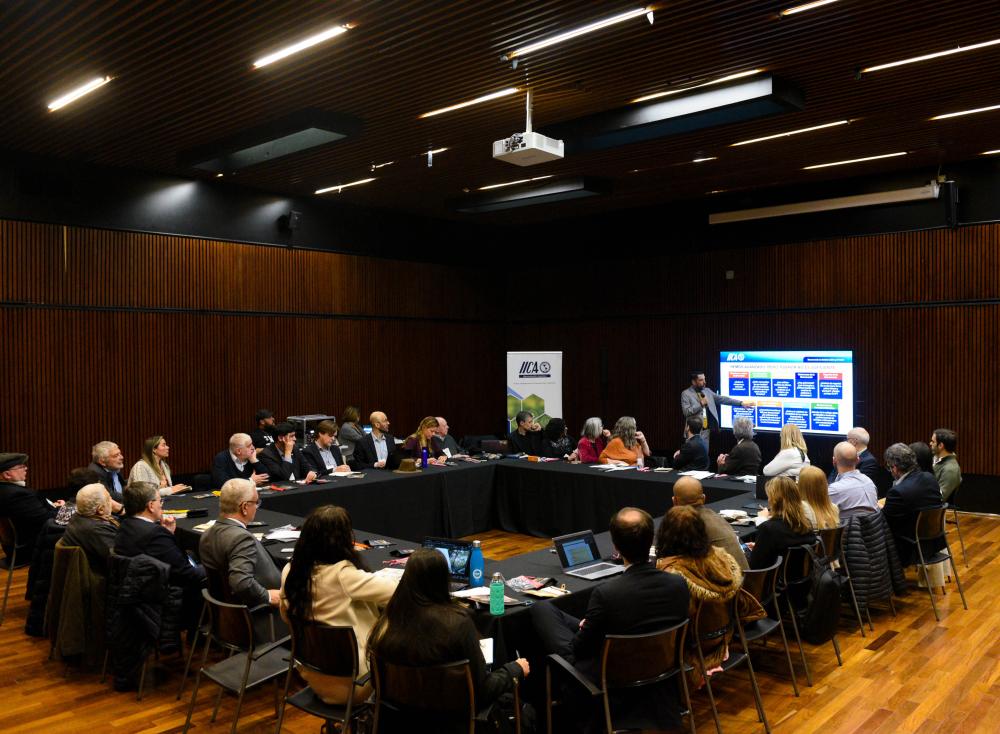The Latin American Bioeconomy Network was established during the 27th Annual Conference of the International Consortium on Applied Bioeconomy Research.

Buenos Aires, 6 July 2023 (IICA) – Convinced of the need for joint work and collaboration, representatives of more than twenty-five public, private and academic institutions, as well as from regional and national cooperation agencies involved in the region’s bioeconomy agreed to establish the Latin American Bioeconomy Network.
The decision was taken in Buenos Aires during a workshop at the 27th Annual Conference of the International Consortium on Applied Bioeconomy Research (ICABR), which was co-organized by the Government of Argentina, ICABR and the Inter-American Institute for Cooperation on Agriculture (IICA).
IICA was appointed to serve as the Executive and Technical Secretariat of the Latin American Network, based on a unanimous decision of the institutions and organizations participating in the ICABR workshop. During the forum, participants discussed actions that would be required to build on current efforts to convert the bioeconomy into a development model, through the sustainable use of the region’s biological resources and principles.
The hope is that the Latin American Bioeconomy Network will become a forum for discussion, sharing and development among the region’s leading bioeconomy experts.
The Network will facilitate the management of knowledge, good practices and lessons learned among the participating organizations. It will also enable them able to work together to formulate and implement projects around common objectives and to create synergies among members to augment the human, financial and political resources of ongoing initiatives.
The bioeconomy has matured in various Latin American and Caribbean countries in recent years. The countries of the region have made significant strides in awareness building, public policy formulation and production development of the bioeconomy, in particular in terms of biotechnology applications, biofuels, bioinputs, low-carbon agriculture and ecosystem services, among other areas.
There are also more regional and international organizations that are supporting public and private efforts in this area in the region.
However, the professionals, experts and authorities attending the workshop that IICA organized as part of the ICABR International Conference all agreed that the region’s bioeconomy is still far from achieving its potential.
Hugo Chavarría, Manager of IICA’s Innovation and Bioeconomy Program, warned that, “Considering the biological wealth and production capacity of Latin America to capitalize on the bioeconomy, efforts to date have been insufficient. If we want to convert the bioeconomy into a sustainable development model for countries in the region and to be at the forefront of the global bioeconomy, we must pick up the pace”.
“Given that the individual capacities of any national, regional or international organization are insufficient to accomplish what needs to be done and that many challenges and opportunities are shared among the countries, IICA is convinced that the only way to make headway is through synergies and collaboration”, he added.
The workshop where the idea to establish the Network arose was attended by bioeconomy decisionmakers from Ecuador, Colombia, Argentina, Brazil, Uruguay and Paraguay. Also in attendance were representatives of the key international and regional organizations that drive the regional bioeconomy, such as the Inter-American Development Bank (IDB), the Global Green Growth Institute (GGGI), UNESCO, the Humboldt Institute, the German Agency for International Cooperation (GIZ), the Getulio Vargas Foundation, the Stockholm Environment Institute, Allbiotech, iGEM, Biointropic, the Cali Biotec Corporation, Grid Exponential, SF500, RedBio, the Regional Consortium of Agricultural Experimentation (CREA) and the Argentinian Association of Direct Seeding Farmers (AAPRESID), among others.
Through discussion and based on the input of all those in attendance, six work priorities were defined for the Latin American Bioeconomy Network: the development of metrics to measure and evaluate the bioeconomy; governance of regional, national and local bioeconomies; positioning of the bioeconomy in the region and in international negotiation forums; awareness building and communication about the potential and risks of the bioeconomy; acceleration and scaling up of bioeconomy solutions; and the development of suitable bioeconomy approaches for countries, regions and chains.
The participants also agreed that the Networks’ Executive Secretariat would identify relevant stakeholders in the regional bioeconomy that had not attended the workshop and would invite them to come on board. Moreover, each of the institutions participating in the Network would inform the other members about initiatives and projects that they were undertaking in the areas identified as priorities, in order to promote joint work and closer ties within the group. The Network also resolved to create a community of practice.
The members of the Latin American Bioeconomy Network also agreed on the importance of jointly developing a Strategic Plan and creating an International Advisory Committee in the long term.

Important cooperation agreements
During the ICABR Annual Conference in the capital of Argentina, which has brought together eminent academics and key technical and policy experts on the bioeconomy, IICA signed a technical cooperation agreement with the Group of Producing Countries from the Southern Cone (GPS). This influential network of private institutions and experts from the agriculture sectors of Argentina, Brazil, Paraguay and Uruguay (ABPU) is aiming to contribute to the development and integration of the agroindustries of countries in the region and their increased international prominence.
International trade and regional integration; innovation and bioeconomy; agricultural health, food safety and quality; digitalization of the agrifood system and environmental issues are the areas of cooperation defined in the agreement signed by GPS Technical Coordinator, Marcelo Regunanga and IICA Director General, Manuel Otero.
IICA also signed a cooperation agreement in Buenos Aires with Argentina’s Office of the Administrator General for Ports (AGP), an organization that manages the capital city’s port, which is the point of departure for a large share of Argentina’s agrifood exports.
More information:
Institutional Communication Division.
comunicacion.institucional@iica.int
Hugo Chavarría, Manager of IICA’s Innovation and Bioeconomy Program.
hugo.chavarria@iica.int











